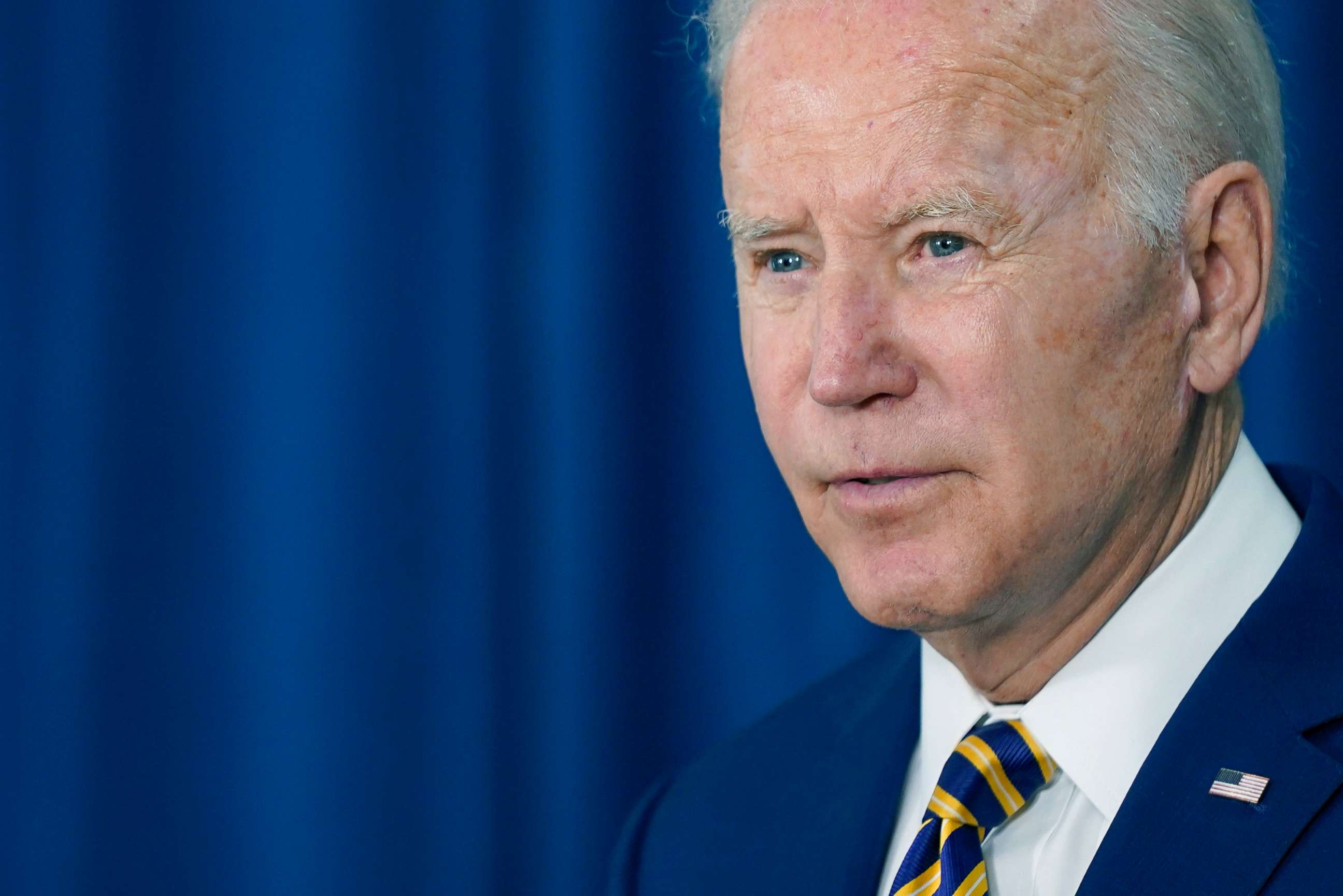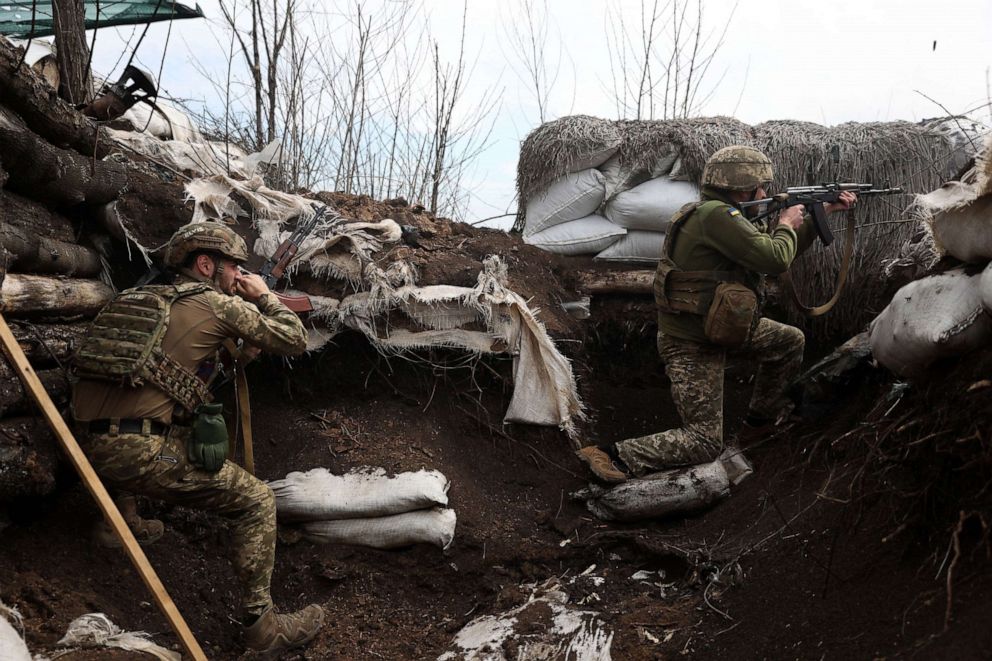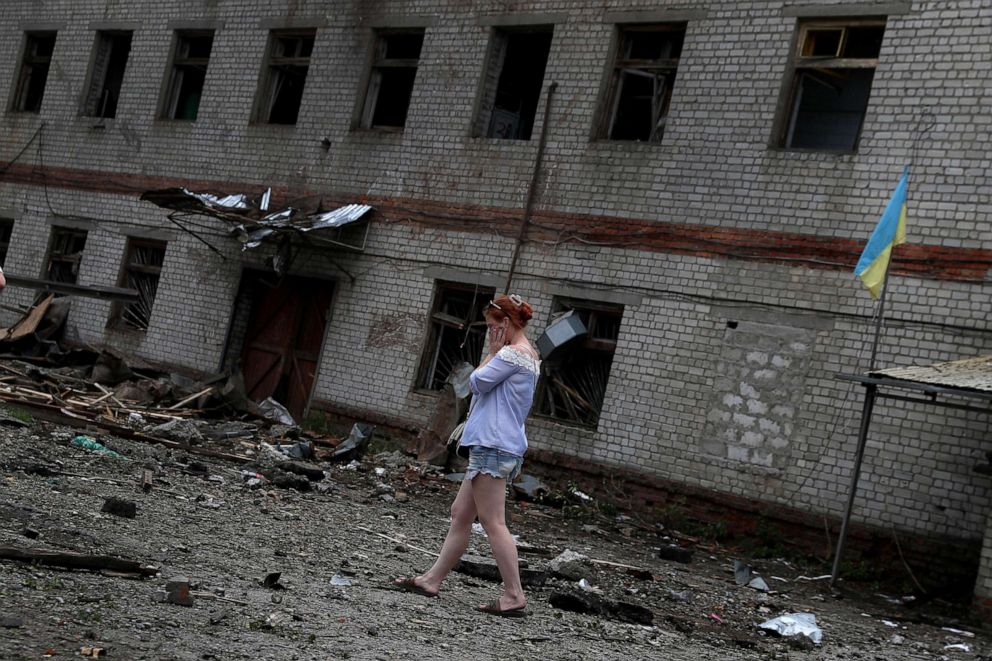100 days in, fate of Biden's face-off with Putin over Ukraine still uncertain
One hundred days after Russia invaded Ukraine, the unexpectedly prolonged conflict has created a political headache for President Joe Biden with no end in sight.
Historic inflation and sky-high prices at the gas pump in the U.S. have driven Biden's popularity down ahead of midterm elections this fall.
He has to a large degree risked his political fortunes on the outcome of a war that he has pledged he will not send U.S. troops to fight – and which shows no signs of abating.
Russia has made recent gains on the battlefield. Ukraine's President Volodymyr Zelenskyy said Thursday that Russian forces now control 20% of Ukrainian territory.

Biden said Friday that "it appears" there will have to be "a negotiated settlement" to end the war.
"What that entails, I don't know," the president said, speaking to reporters in Rehoboth Beach, Delaware. "I don't think anybody knows at this time.”
But Biden would not say if he thought Ukraine had to cede territory to Russia to achieve peace.
"Nothing about Ukraine without Ukraine," he said. "It’s their territory. I'm not going to tell them what they should and shouldn't do."
The president has succeeded in largely keeping Western allies united, strengthening the NATO alliance in the face of Russia attempts to split it.
But as Russia continues to block Ukrainian food exports and sanctions drive up energy prices worldwide, Biden has found himself in the increasingly difficult position of balancing his desire to stop what he has called Russia's threat to democracy, with Americans' rising economic uncertainty.

Russia has also sought to present the conflict as a fight in which the United States is directly involved.
But while Biden insists he will not send American troops to Ukraine, as long as the war continues -- and while the U.S. sends Ukraine increasingly sophisticated weaponry -- the risk remains that the president could find himself more deeply involved than he wants.
The United States has sent billions of dollars in military and economic assistance to Ukraine. Last month, Biden signed legislation providing $40 billion more over the coming months.
And it has provided intelligence that the Ukrainians have used to target Russian forces.

The U.S. military assistance -- combined with aid from other Western nations -- have contributed to Ukraine's successes in fending off the Russian invasion.
The level of weapons systems the U.S. has provided has become more and more advanced over time.
This week, Biden committed to sending even more powerful, longer-range missile systems useful for the battle in eastern Ukraine.
After Russia's failures early in the war -- not taking any major cities and finding itself forced to narrow its aims -- it has now made steady progress in the east.
What Vladimir Putin thought might just take a matter of days -- conquering all of Ukraine -- didn't happen due to Ukrainian resolve and increasing American help.
But his aggression continues, despite unprecedented heavy sanctions that Biden said would change his behavior -- sanctions now in effect for months.
One hundred days in, how Biden's face-off with Putin ends -- and when -- is still an open question.





